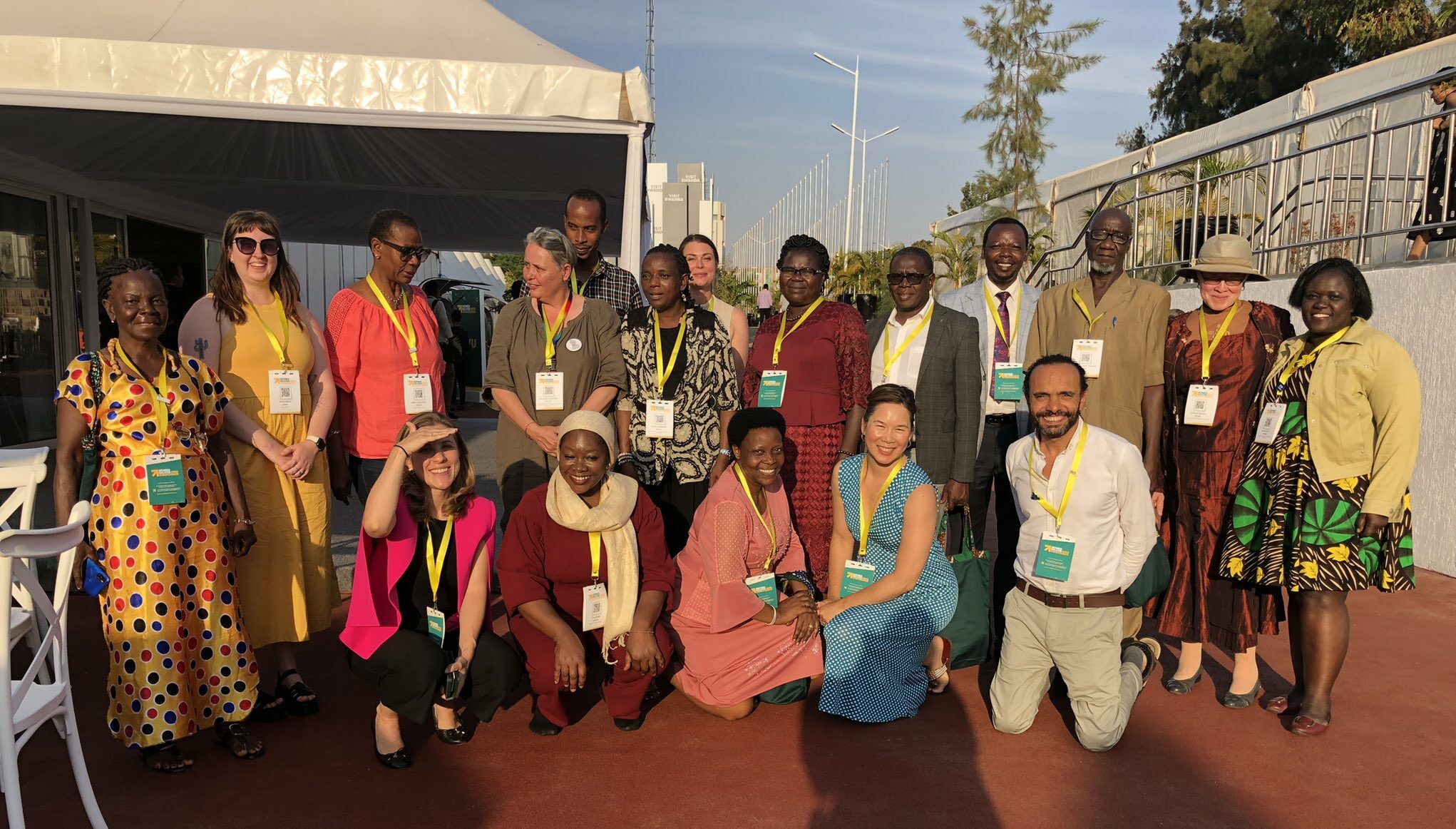Picture credit: Karin Hugsén , Act Church of Sweden
Over 25 diverse faith-based organisations attended Women Deliver 2023, which concluded yesterday in Rwanda. ACT Alliance co-convened a ‘meet and greet’ at the conference, for faith actors to connect, share, and strategize on our collective work for gender justice.
Rising fundamentalisms, which are pushing back hard against women’s rights at every level and across the world, religion can often be perceived as only contributing to the problem of gender inequalities. Patriarchal gender norms continue to be packaged in the language of religion because it legitimises them, it makes them appear divinely ordained and unchangeable. Anti-rights actors are mobilising religious language to block or even reverse progress on gender equality.
Nearly 84 per cent of the world’s population identifies with a religious group. Many faith-based organisations, who participated in Women Deliver, are advocating for the importance of engaging in faith-based partnerships to advance gender justice.
A focus of the Women Deliver conference is advancing Sexual and reproductive health and rights, which will not be achieved simply by changing laws, reducing poverty, or improving education and health care services. While these are all essential steps, we also need to challenge and eliminate discriminatory social norms that constrain bodily autonomy, agency and rights. To this end, the ACT Gender Justice Programme is working closely with our members, national and regional forums and platforms to harness the value-based power of faith actors to advance Sexual and Reproductive Health and Rights.
For example, the ACT Argentina Forum is confronting fundamentalist and hateful discourses which oppress, manipulate, and deny the fundamental freedoms of women and girls in all their diversity. The forum is developing and sharing liberating faith narratives and theological perspectives that encourage the rereading of sacred texts and cultural contexts. It is also creating safe spaces of trust, which are open, intimate and focused on active listening without judgement. Together, we are working to support and amplify those prophetic voices who are courageously calling for transformative action to achieve justice for all.
In the report, ‘Looking Back to Look Forward: The Role of Religious Actors in Gender Equality since the Beijing Declaration’, which ACT Alliance co-published, we argue that understandings of the gender-religious nexus is critical for achieving Sustainable Development Goal 5, and make the following recommendations:
- Choosing partners who are leaders on gender issues in their contexts: International collaboration and partnerships are pivotal for achieving all SDGs, especially now as the world tries to recover from the global COVID-19 pandemic. Achieving SDG 5 is deeply interconnected with achieving all SDGs.
- Encourage religious literacy: Development agencies need to provide training throughout their organizational structures that convey a basic understanding of the ways in which religious discourses are context-specific, historically situated, internally diverse, continually reinforced and altered by both internal and external factors.
- Conducting comprehensive gender analyses prior to projects and partnerships: A comprehensive, context-specific, and theory-based gender analysis can highlight the religion-gender intersection in each locality and facilitate the inclusion of religious actors. It can also uncover the patriarchal power dynamics behind religious arguments supporting gender inequality.

